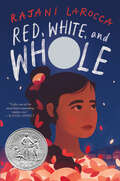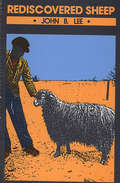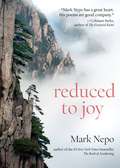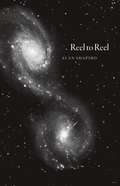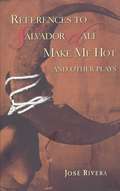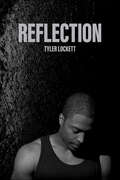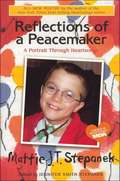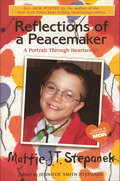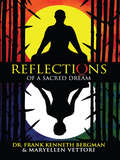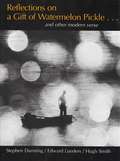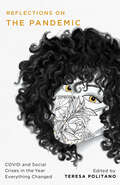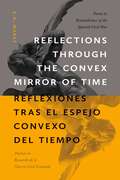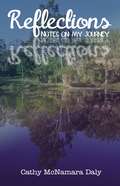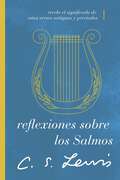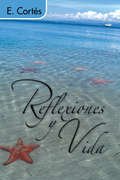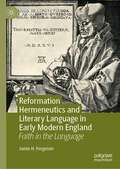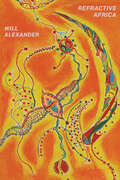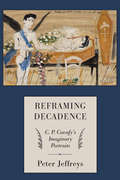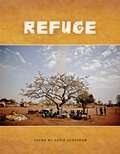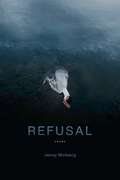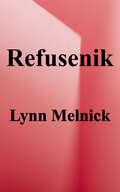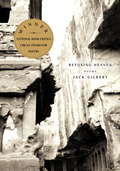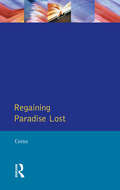- Table View
- List View
Red, White, and Whole
by Rajani LaRoccaA heartbreakingly hopeful #ownvoices novel in verse about an Indian American girl whose life is turned upside down when her mother is diagnosed with leukemia. <p><p>Reha feels torn between two worlds: school, where she’s the only Indian American student, and home, with her family’s traditions and holidays. But Reha’s parents don’t understand why she’s conflicted—they only notice when Reha doesn’t meet their strict expectations. Reha feels disconnected from her mother, or Amma, although their names are linked—Reha means “star” and Punam means “moon”—but they are a universe apart. Then Reha finds out that her Amma is sick. Really sick. <p><p>Reha, who dreams of becoming a doctor even though she can’t stomach the sight of blood, is determined to make her Amma well again. She’ll be the perfect daughter, if it means saving her Amma’s life. <p><p>From Indies Introduce author Rajani LaRocca comes a radiant story about the ties that bind and how to go on in the face of unthinkable loss. This is the perfect next read for fans of Jasmine Warga and Thanhhà Lại.
Redemption Songs: 1000 Hymns & Choruses
by CollinsThis is a collection of 1,000 hymns, words only, many originating in the 19th century, projecting a life of holiness and sacrifice but also joy. More than 600 hymns have refrains which are often expressions of praise and thanks to God. As with other hymnbooks on Bookshare, this has DAISY markup which allows you to move from hymn to hymn. In a BRF file, Bookshare software creates a lengthy table of contents followed by the text of the hymn book. For hymnals on Bookshare see also: Glory to God (Presbyterian); Evangelical Lutheran Worship (ELCA); Lutheran Servicebook: Psalms and Hymns (Missouri Synod); The United Methodist Hymnal; Chalice Hymnal (Disciples of Christ); and The Revised English Hymnal (Anglican Communion). For nondenominational hymn collections, see the following: Christian Hymns; Gospel Hymn Book; Hymns for Christian Service and Worship; Hymns of Faith; Hymns of Light and Love; Redemption Hymns; Redemption Songs and Choruses; and The New Believers Hymn Book; Amazing Grace: Hymn Texts for Devotional Use, edited by Bert Polman, Marilyn K. Stulken, and James Rawlings Sydnor. For books that discuss hymns, their history and uses see: 100 Favorite Hymns by Thomas Nelson; Hosannas Forever, Hymns of Heaven and Our Pilgrimage by David Leeman; Our Hymns, Our Heritage: A Student Guide to Songs of the Church, by David and Barbara Leeman; The Hymnal, a Reading History, by Christopher Phillips; and The Hymns of Martin Luther, edited by Leonard Woolsey Bacon. For classical music lovers, the texts of cantatas by Johann Sebastian Bach are available in two books: The Church Cantatas of J. S. Bach by Alec Robinson (with commentary), and Johann Sebastian Bach: The Complete Cantatas in German-English translations by Richard Stokes.
Rediscovered Sheep
by John B. LeeRediscovered Sheep takes its origin generations ago when an ancestor of John B. Lee began to raise Lincoln sheep in Ontario. John B. may never take up his inheritance as Master of the Flock, but his understanding of sheep husbandry is woven into the woolly fabric of his work. The first poems in Rediscovered Sheep are about real modern-day shepherds and actual sheep. Then the sheep get loose. They spill out into human roles -- policeman, guest speaker, ballerina -- which they occupy exuberantly and sometimes with a disquieting naturalness. Rediscovered Sheep is a realistic/fantasy pastoral for contemporary times, with the true pastoral’s wise innocence that never forgets the wolf.
Reduced to Joy
by Mark NepoMark Nepo is emerging as one of the truly significant writers and thinkers of today. Nepo has a singular way of distilling great truths down to their essence. Moreover, during his cancer journey, Nepo relied on the power of expression and the writing process to keep him tethered to life. In Reduced to Joy, Mark Nepo explores the places where pain and joy are stitched to resilience, uncovering them with deep wisdom, poetic passages and personal revelations. Nepo reminds us all of the secret and sacred places within, forgotten in the noise and chatter of our busy distracted 21st Century lives. Reduced to Joy is a lesson in stillness, in standing in the mystery and, above all, in the work of love.
Reel to Reel (Phoenix Poets)
by Alan ShapiroReel to Reel, Alan Shapiro's twelfth collection of poetry, moves outward from the intimate spaces of family and romantic life to embrace not only the human realm of politics and culture but also the natural world, and even the outer spaces of the cosmos itself. In language richly nuanced yet accessible, these poems inhabit and explore fundamental questions of existence, such as time, mortality, consciousness, and matter. How did we get here? Why is there something rather than nothing? How do we live fully and lovingly as conscious creatures in an unconscious universe with no ultimate purpose or destination beyond returning to the abyss that spawned us? Shapiro brings his humor, imaginative intensity, characteristic syntactical energy, and generous heart to bear on these ultimate mysteries. In ways few poets have done, he writes from a premodern, primal sense of wonder about our postmodern world.
References to Salvador Dalí Make Me Hot and Other
by José RiveraSurrealism, magic realism and expressionism are the hallmarks of Jose Rivera's influential body of work. This new volume collects the author's plays written in the past five years, including References to Salvador Dalí Make Me Hot ("effortlessly melds otherworldly fantasy with gritty realism to make sparks fly onstage."--The Journal News), Sueño (a reworking for Pedro Calderón's Life is a Dream) and Sonnets for an Old Century, the author's most recent work, which recently premiered in Los Angeles.Puerto Rican-born playwright José Rivera plays have been produced all over the world and his work has been translated into seven languages. His best known work includes Marisol and Each Day Dies with Sleep. "Rivera has a messianic mission to replace old and dying creeds with vibrant new visions."--Robert Brustein, New RepublicAlso available by José Rivera Marisol and Other Plays PB $15.95 1-55936-136-0 * USA
Reflection
by Tyler LockettFueled by faith and powered by a strong work ethic, Tyler Lockett's debut book of poetry is a reflective and uplifting journey through topics such as identity, sports, race, relationships, and how to live a purposeful life. As an NFL All-Pro wide receiver and return specialist for the Seattle Seahawks, Lockett draws on his unique perspective as a professional athlete to address life's many challenges, temptations, and rewards. From reminding young people to pursue their dreams, to pleading with a friend not to take his own life, Lockett's poetry encourages readers to stay positive even when confronting impossible odds. In addition to never-before-published poems, Reflection also includes workshop questions, notes, and inspirational messages that give readers an opportunity to reflect on their own lives as well.
Reflections of a Peacemaker: A Portrait Through Heartsongs
by Mattie StepanekFinal poems of the award winning, inspiring poet and tributes written for him.
Reflections of a Peacemaker: A Portrait through Heartsongs
by Mattie J.T. StepanekMattie J. T. Stepanek lived and died a child, but he had the spirit of a giant. Affected by a rare and fatal neuromuscular disease, Mattie lived almost fourteen years but in that time became a poet, best-selling author, peace activist, and a prominent voice for the Muscular Dystrophy Association. Before his death in June 2004, his five volumes of Heartsongs poetry sold more than a million copies.Reflections of a Peacemaker: A Portrait Through Heartsongs is the final collection of Heartsongs that Mattie was working on when he died. It includes the last poem Mattie penned along with a special collection of unpublished poetry, photographs, and artwork spanning the decade from when he began writing Heartsongs at age three.Culled from the thousands of poems, essays, and journal entries Mattie left behind, the entries in Reflections of a Peacemaker create a portrait of Mattie in his own words. In these poems he explores disability, despair, and death but also the gifts he finds in nature, prayer, peace, and his belief in something "bigger and better than the here and now." The poems are grouped by theme such as playful, stormy, sacred, and final Heartsongs, with each section introduced by a personal tribute from the likes of Maya Angelou, Oprah Winfrey, Larry King, and former President Jimmy Carter.In the words of Mattie's mother, Jeni Stepanek, who has published Reflections of a Peacemaker at her son's request, "In reading these poems we enter Mattie's world and gain insight through a child who somehow balanced pain and fear with optimism and faith."
Reflections of a Sacred Dream
by Dr Frank Kenneth Bergman Maryellen VettoriThrough the influence of Japanese-inspired haiku, stop and evaluate your current state of mind. Are you focused on spending your time and thoughts on accumulation of material items that will be gone tomorrow? Is your mind filled with stress and worry about seemingly important matters that will not matter in time to come? Throughout the poetry in this illustrated book, free your mind and look around you right where you are at the present time. See for yourself the spiritual beauty of nature as it unfolds in front of your senses every day. Study the concepts of balance and harmony in the universe. Only then can you appreciate what you are sharing with everything else in your universe as you travel on your sacred journey.
Reflections on a Gift of Watermelon Pickle ... and Other Modern Verse
by Edward Lueders Stephen Dunning Hugh SmithHere are modern poems chosen for their individual excellence and their special appeal to young people. From lighthearted Phyllis Mc-Ginley to pessimistic Ezra Pound; from the lyricism of Edna St. Vincent Millay to the vigor of Lawrence Ferlinghette; from Carl Sandburg on loneliness to Paul Dehn on the bomb -- such is the range. The little known or unknown poet and the widely recognized appear side by siide. Whatever the subject matter -- pheasant or flying saucer; lapping lake water or sonic boom; a deer hunt, a basketball, or a bud -- it is all poetry reflecting today's images and today's moods. The editors spent several years bringing together 1200 poems they considered fine enough to include, then slowly and carefully sifted out of 114 which appear in the book. Readers of Reflections on a Gift of Watermelon Pickle . . . and Other Modern Verse may well be tempted by Eve Merriam's suggestion in "How to Eat a Poem" Don't be polite Bite in. Pick it up with your fingers and lick The juice that may run down your chin. It is ready and ripe now, whenever you are. Completely formatted following the standard established for poetry books for the Bookshare collection to make the poetry readable and easily navigated for all readers.
Reflections on the Pandemic: COVID and Social Crises in the Year Everything Changed
by Joyce Carol Oates Marc Aronson James Goodman Mark Doty Susan Miller David Orr David Greenberg Rigoberto González Angelique Haugerud Jonathan Scott Holloway Naomi Jackson Gregory Pardlo Caridad Svich Ulla D. Berg Vikki S. Katz Patricia Akhimie Belinda McKeon Louis Masur Amy Jordan Stephanie Bonne Paul Falkowski Mary E. O'Dowd James W. Hughes Yalidy Matos Kimberly Camp Kelly-Jane Cotter David Dreyfus Adrienne Eaton Katherine Epstein Mackenzie Kean Amir Lighty Revathi Machan Stephen Masaryk Yehoshua November Katherine Ognyanova Steve Pikiell Benjamin Pukert Leslieann Hobayan Leah Falk Teresa PolitanoReflections on the Pandemic: COVID and Social Crises in the Year Everything Changed is a collection of essays, poems, and artwork that captures the raw energy and emotion of 2020 from the perspective of the Rutgers University community. The project features work from a diverse group of Rutgers scholars, students, staff, and alumni. Reflecting on 2020 from a number of perspectives – mortality, justice, freedom, equality, democracy, family, health, love, hate, economics, history, medicine, science, social justice, the environment, art, food, sanity – the book features contributions by Evie Shockley, Joyce Carol Oates, Naomi Jackson, Ulla Berg, Grace Lynne Haynes, Jordan Casteel, and President Jonathan Holloway, among others. This book, through its rich and imaginative storytelling at the intersection of scholarly expertise and personal narrative, brings readers into the hearts and minds of not just the Rutgers community but the world. Contributors include: Patricia Akhimie, Marc Aronson, Ulla D. Berg, Stephanie Bonne, Stephanie Boyer, Kimberly Camp, Jordan Casteel, Kelly-Jane Cotter, Mark Doty, David Dreyfus, Adrienne E. Eaton, Katherine C. Epstein, Leah Falk, Paul G. Falkowski, Rigoberto González, James Goodman, David Greenberg, Angelique Haugerud, Grace Lynne Haynes, Leslieann Hobayan, Jonathan Holloway, James W. Hughes, Naomi Jackson, Amy Jordan, Vikki Katz, Mackenzie Kean, Robert E. Kopp, Christian Lighty, Stephen Masaryk, Louis P. Masur, Revathi V. Machan, Yalidy Matos, Belinda McKeon, Susan L. Miller, Yehoshua November, Joyce Carol Oates, Mary E. O’Dowd, Katherine Ognyanova, David Orr, Gregory Pardlo, Steve Pikiell, Teresa Politano, en Purkert, Nick Romanenko, Evie Shockley, Caridad Svich, and Didier William.
Reflections through the Convex Mirror of Time / Reflexiones tras el Espejo Convexo del Tiempo: Poems in Remembrance of the Spanish Civil War / Poemas en Recuerdo de la Guerra Civil Española (Mary Burritt Christiansen Poetry Series)
by E.A. MaresIn this poignant bilingual collection, preeminent New Mexican poet E. A. &“Tony&” Mares posthumously shares his passionate journey into the broken heart and glimmering shadows of the Spanish Civil War, whose shock waves still resonate with the political upheavals of our own times. Mares engages in dialogue with heroes and demons, anarchists and cardinals, and beggars and poets. He takes us through the convex mirror of history to the blood-stained streets of Madrid, Guernica, and Barcelona. He interrogates the assassins of Federico García Lorca for their crimes against poetry and humanity. Throughout the collection the narrator is participant and commentator, and his language is both lyrical and direct. In addition to Mares&’s parallel Spanish and English poems, the book includes a prologue by Enrique Lamadrid, an introduction by Fernando Martín Pescador, and an epilogue by Susana Rivera. Lovingly shepherded and completed by friends and family, this book will appeal to Mares enthusiasts and readers interested in poetry and history, who will be glad to have this unexpected gift from a master&’s voice.
Reflections: Notes On My Journey
by Cathy McNamara DalySince committing my life to Christ, I have, occasionally, become a secretary for the Holy Spirit. This collection comes out of that relationship and the various conversations we have shared at the highs, lows, and in-betweens of that walk.
Reflexiones sobre los Salmos: Revela el significado de estos versos antiguos y preciados
by C. S. LewisUna hermosa obra maestra teológica del venerado C. S. Lewis en la que considera las porciones más poéticas de las Escrituras y lo que nos dicen sobre Dios, la Biblia y la fe.En este acertado y esclarecedor libro, C. S. Lewis, el gran escritor británico, erudito, teólogo laico, locutor, apologista cristiano y autor bestseller de Mero cristianismo, Las cartas del diablo a su sobrino, El gran divorcio, Las crónicas de Narnia y muchos otros amados clásicos, examina los Salmos. A medida que Lewis revela el significado de estos versos poéticos intemporales, aclara su importancia en nuestra vida cotidiana y nos recuerda su poder para iluminar momentos de gracia.The Reflections on the PsalmsA beautiful masterpiece of the revered author&’s moving theological work in which he considers the most poetic portions from Scripture and what they tell us about God, the Bible, and faith.In this wise and enlightening book, C. S. Lewis—the great British writer, scholar, lay theologian, broadcaster, Christian apologist, and bestselling author of Mere Christianity, The Screwtape Letters, The Great Divorce, The Chronicles of Narnia, and many other beloved classics—examines the Psalms. As Lewis divines the meaning behind these timeless poetic verses, he makes clear their significance in our daily lives, and reminds us of their power to illuminate moments of grace.
Reflexiones y vida
by E. CortésEstos poemas te introducen de lleno dentro de la naturaleza humana y te dan un punto de vista distinto sobre temas que limitan e influyen en nuestras vidas, amor, muerte, credo, sexo, drogas, política, etc. Un viaje al interior de nuestros pensamientos más íntimos.
Reformation Hermeneutics and Literary Language in Early Modern England: Faith in the Language (Early Modern Literature in History)
by Jamie H. FergusonThe expressive and literary capacities of post-Reformation English were largely shaped in response to the Bible. Faith in the Language examines the convergence of biblical interpretation and English literature, from William Tyndale to John Donne, and argues that the groundwork for a newly authoritative literary tradition in early modern England is laid in the discourse of biblical hermeneutics. The period 1525-1611 witnessed a proliferation of English biblical versions, provoking a century-long debate about how and whether the Bible should be rendered in English. These public, indeed institutional accounts of biblical English changed the language: questions about the relation between Scripture and exegetical tradition that shaped post-Reformation hermeneutics bore strange fruit in secular literature that defined itself through varying forms of autonomy vis-a-vis prior tradition.
Refractive Africa
by Will AlexanderFinalist for the Pulitzer Prize Winner of the California Book Award in Poetry Three kinetically distilled long poems by the singular American poet who “transfigures ‘thought’ into a weave of lexical magic” (Philip Lamantia) “The poet is endemic with life itself,” Will Alexander once said, and in this searing pas de trois, Refractive Africa: Ballet of the Forgotten, he has exemplified this vital candescence with a transpersonal amplification worthy of the Cambrian explosion. “This being the ballet of the forgotten,” he writes as diasporic witness, “of refracted boundary points as venom.” The volume’s opening poem pays homage to the innovative Nigerian-Yoruban author Amos Tutuola; it ends with an encomium to the modernist Malagasy poet Jean-Joseph Rabearivelo—two writers whose luminous art suffered “colonial wrath through refraction.” A tribute to the Congo forms the bridge and brisé vole of the book: the Congo as “charged aural colony” and “primal interconnection,” a “subliminal psychic force” with a colonial and postcolonial history dominated by the Occident. Will Alexander’s improvisatory cosmicity pushes poetic language to the point of most resistance—incantatory and swirling with magical laterality and recovery.
Reframing Decadence: C. P. Cavafy's Imaginary Portraits
by Peter JeffreysDuring his sojourn in England during the 1870s, a young Cavafy found himself enthralled by the aesthetic movement of cosmopolitan London. It was during these years that he encountered the canvases and personalities of Pre-Raphaelite painters, including Burne-Jones and Whistler, as well as works of aesthetic writers who were effecting a revolution in British literary culture and channeling influences from France that would gradually coalesce into an international decadent movement. In Reframing Decadence Peter Jeffreys returns us to this critical period of Cavafy's life, showing the poet's creative indebtedness to British and French avant-garde aesthetes whose collective impact on his poetry proved to be profound. In the process, Jeffreys offers a critical reappraisal of Cavafy’s relation to Victorian aestheticism and French literary decadence. Foremost among the tropes of decadence that captivated Cavafy were the decline of imperial Rome, the rise of Christianity, and the lingering twilight of Byzantium. The influence of Walter Pater on Cavafy’s view of classical and late-antique history was immense, inflected as it was with an unapologetic homoerotic aesthetic that Cavafy would adopt as his own, making Pater’s imaginary portraits an important touchstone for his own historicizing poetry. Cavafy would move beyond Pater to explore a more openly homoerotic sensuality but he never quite abandoned this rich Victorian legacy, one that contributed greatly to his emergence as a global poet. Jeffreys concludes by considering Cavafy’s current popularity as a gay poet and his curious relation to kitsch as manifest in his ongoing popularity via translation and visual media.
Refuge
by Adrie KusserowDeeply cross cultural, humanitarian, political and global poems about how humans deal with suffering across the world. These are poems about cultures rubbing up against each other, war, refugees, child soldiers, spiritual refugees trying to find a home, and a mother who is witnessing these firsthand. Rare ethnographic poetry by a world traveling cultural anthropologist and human rights activist.
Refuge (American Poets Continuum)
by Adrie KusserowDeeply cross cultural, humanitarian, political and global poems about how humans deal with suffering across the world. These are poems about cultures rubbing up against each other, war, refugees, child soldiers, spiritual refugees trying to find a home, and a mother who is witnessing these firsthand. Rare ethnographic poetry by a world traveling cultural anthropologist and human rights activist.
Refusal: Poems
by Jenny MolbergIn Refusal, her searing new collection of poetry, Jenny Molberg draws on elements of the uncanny—invented hospitals, the Demogorgon of Dungeons & Dragons, an Ophelia character who refuses suicide—to investigate trauma, addiction, and forces of oppression. Exposing the effects of widespread toxic misogyny, this confrontational volume examines societal, cultural, and personal gaslighting in situations of domestic abuse. As Molberg writes in “Loving Ophelia Is,” “love and hate simultaneously is the trick of abuse / and the trick of abuse is a vexation of the mind.” A sequence of epistolary poems looks to friendship as a safe haven from violent romantic relationships, while another series on a mother’s struggle with addiction captures the complicated nature of a parent-child relationship affected by alcoholism. Refusal seeks to break silences and to interrogate a cultural misogyny that weighs heavily on a woman’s position in the world.
Refusenik
by Lynn MelnickIn this searing new volume, Lynn Melnick dives head-first through concentric waves of personal and generational trauma with her trademark fearlessness. <p><p>Evincing a complex mind shaped by the late 20th century's misplaced priorities, Refusenik interrogates misogyny and anti-Semitism across time and a shifting global landscape-from a football field in Los Angeles to a Russian shtetl to a beloved daughter's Brooklyn bedroom. Variously unraveling and allowing for intricate tangles of anger, nostalgia and love, these agile poems furrow deeper into the terrain of Melnick's much-celebrated earlier titles, arriving at a profound and pressured understanding of what it means to be a contemporary American.
Refusing Heaven: Poems
by Jack GilbertMore than a decade after Jack Gilbert's The Great Fires, this highly anticipated new collection shows the continued development of a poet who has remained fierce in his avoidance of the beaten path. In Refusing Heaven, Gilbert writes compellingly about the commingled passion, loneliness, and sometimes surprising happiness of a life spent in luminous understanding of his own blessings and shortcomings: "The days and nights wasted ... Long hot afternoons / watching ants while the cicadas railed / in the Chinese elm about the brevity of life." Time slows down in these poems, as Gilbert creates an aura of curiosity and wonder at the fact of existence itself. Despite powerful intermittent griefs-- over the women he has parted from or the one lost to cancer (an experience he captures with intimate precision)-- Gilbert's choice in this volume is to "refuse heaven." He prefers this life, with its struggle and alienation and delight, to any paradise. His work is both a rebellious assertion of the call to clarity and a profound affirmation of the world in all its aspects. It braces the reader in its humanity and heart.
Regaining Paradise Lost (Longman Medieval and Renaissance Library)
by Thomas N. CornsParadise Lost is not merely the masterpiece of John Milton (1608-74) but a turning point in style and form, which had a profound influence on the poetry of the following century. Divided into two parts, this major survey begins by discussing the revolutionary characteristics of Paradise Lost in the context of contemporary literary norms and examines the theological, psychological, stylistic and narrative innovation in the poem. It then provides a fuller account of the complex, and now obscure political, and theological issues and other issues that Milton's poem addresses and sought to resolve. It concludes by examining the themes discussed in the light of the influence of the poem on the tradition of English literature.
